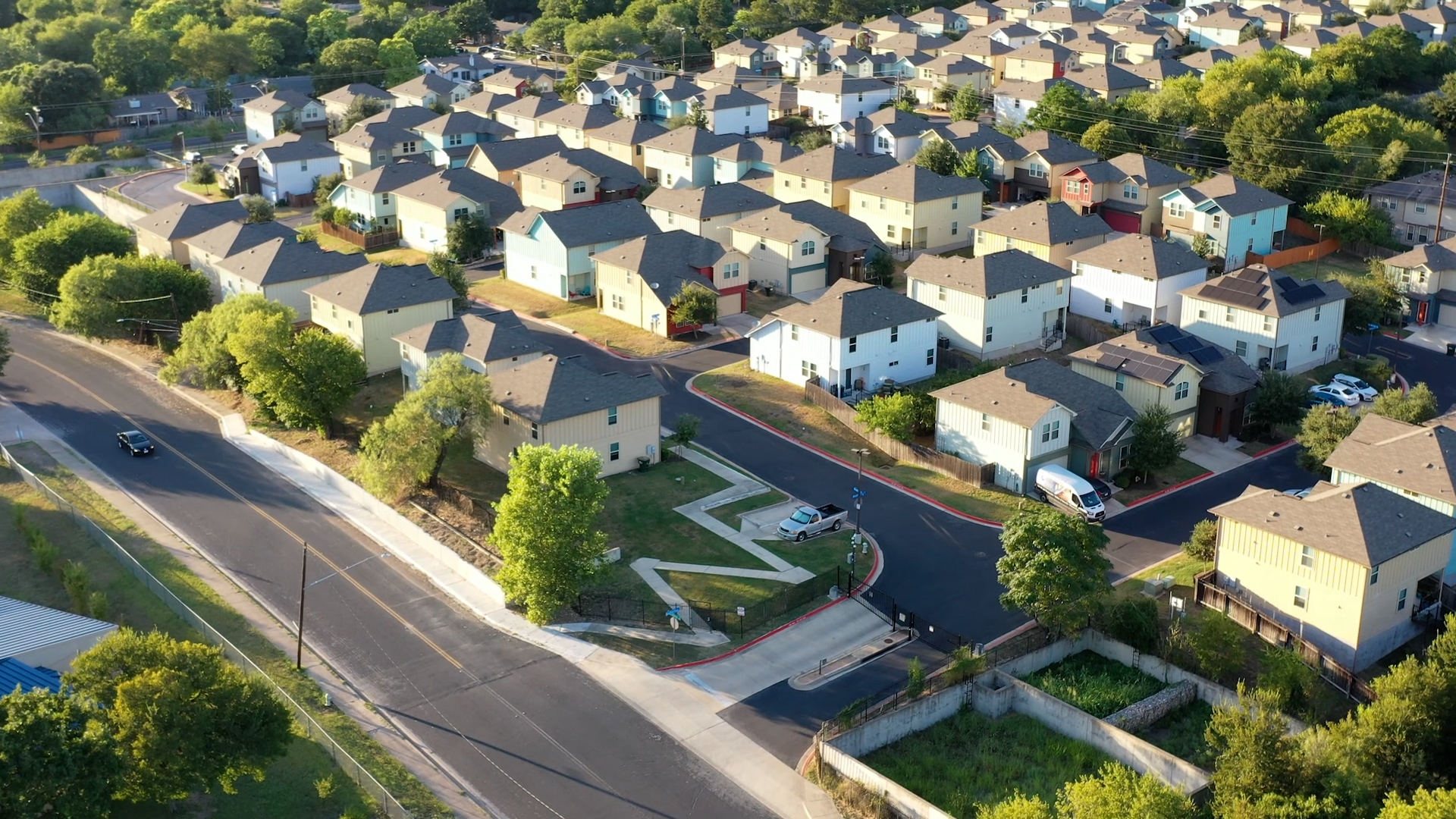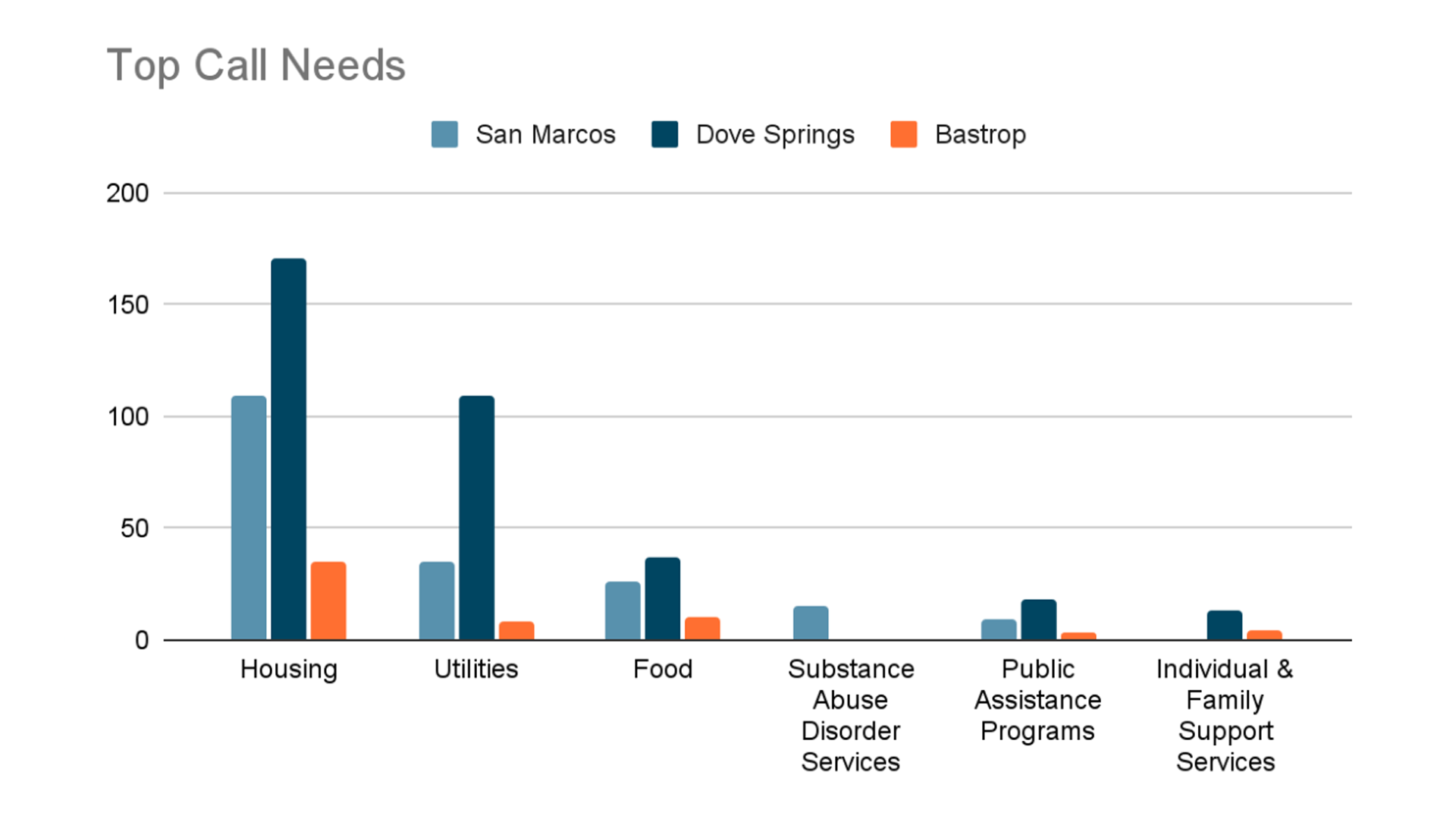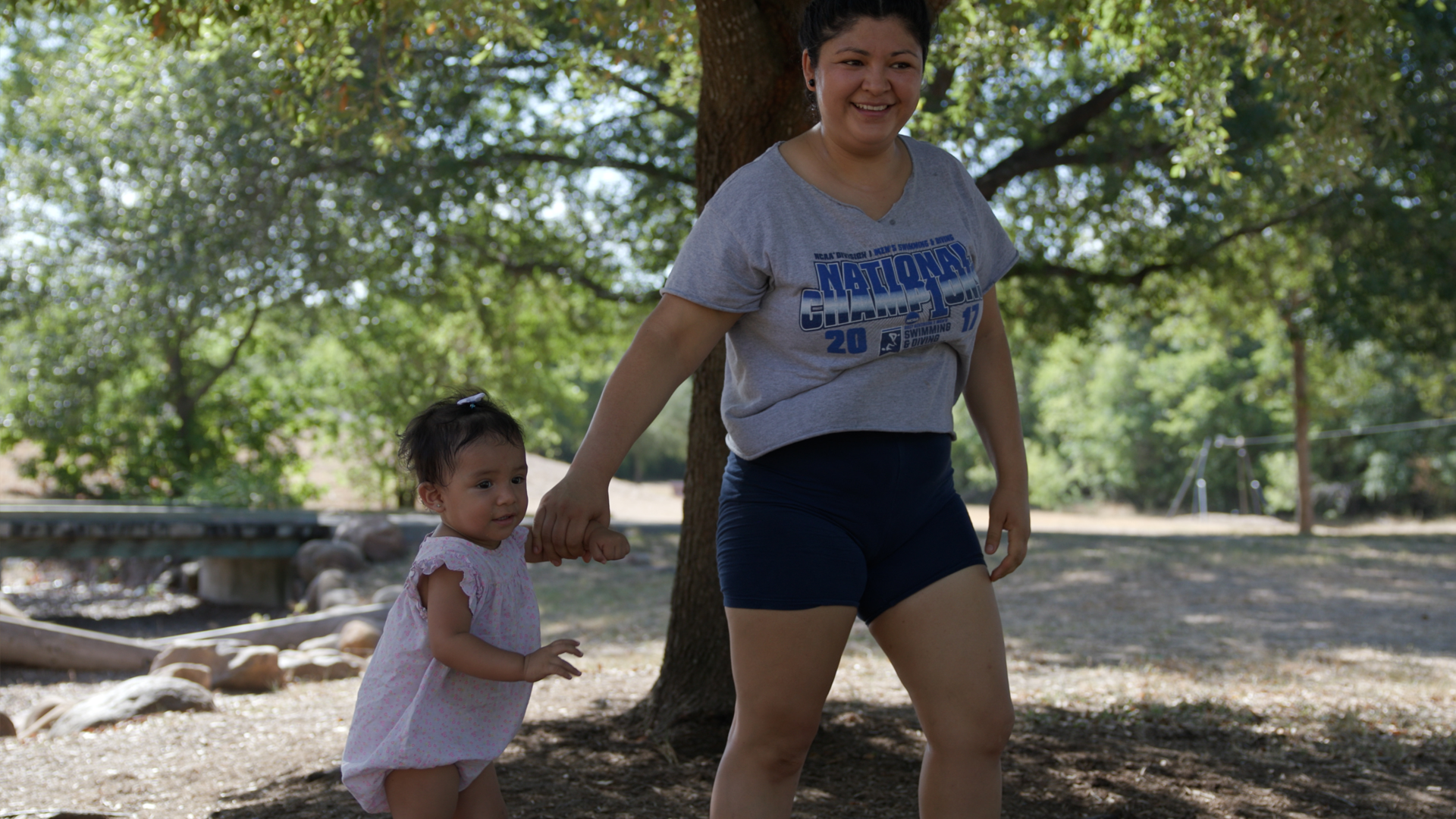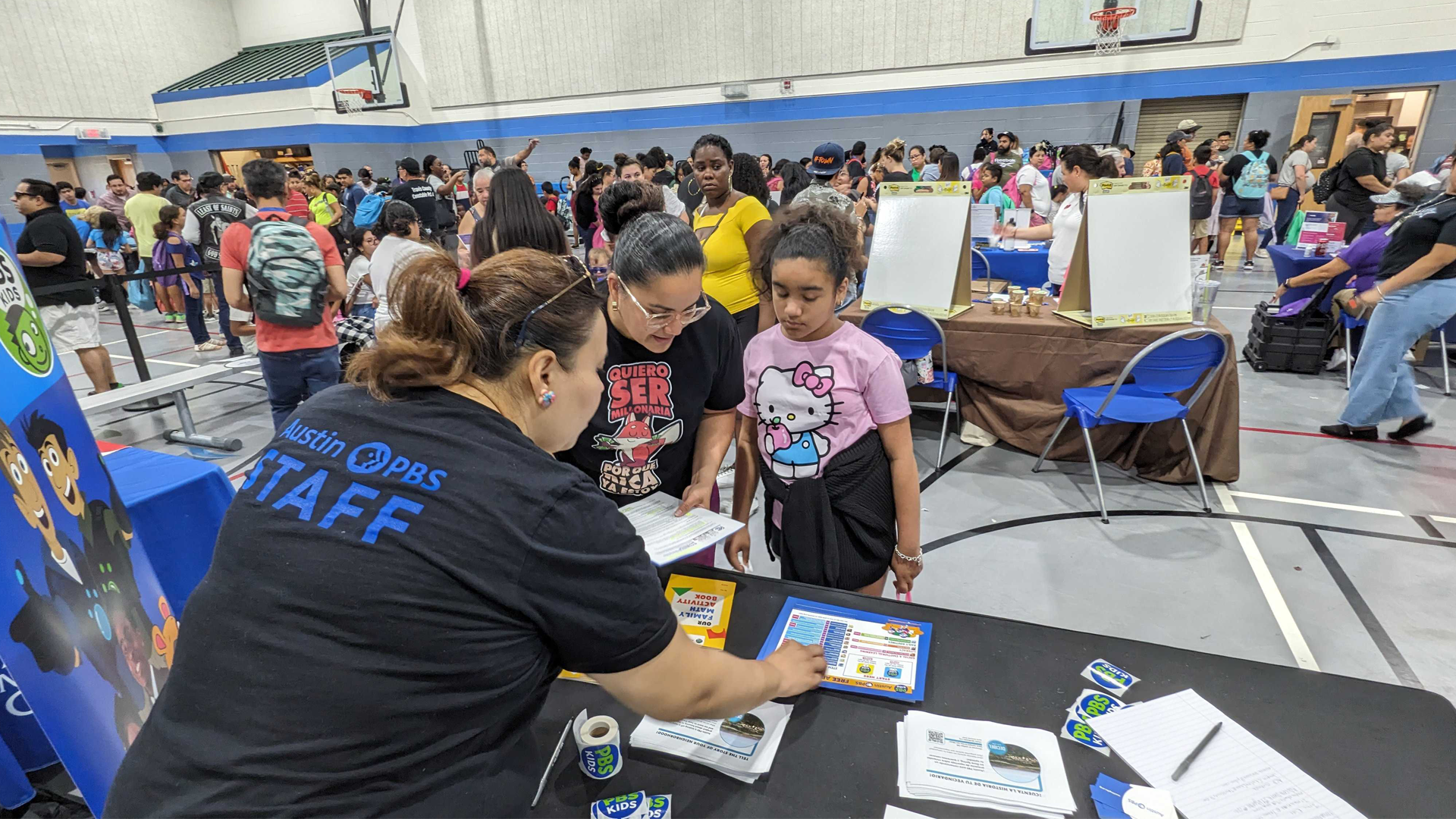
Five Things You Need To Know About Our Next Reporting Project
Journalism often boils down to answering five questions, sometimes called the five w’s: the who, what, when, where and why. Answering those questions often gets reporters and audiences to the heart of a story. This time, we’re asking ourselves those questions about our upcoming reporting project. While we’re maintaining our commitment to community-led journalism, we’re also adding in some new elements this time around. Let’s flip through our reporter’s notebooks to answer five big questions about our new project.
Where are we going?
Dove Springs. It’s a community in southeast Austin, sometimes called ‘the 44’ because it’s in the 78744 zip code. William Cannon Drive and Ben White Boulevard are considered the unofficial north and south boundaries, with Interstate 35 and Dove Springs District Park hemming in the community from the east and west. Farms and dairies primarily operated in the area until the 1940’s. When the Bergstrom Air Force Base opened in 1942, new homes were built to accommodate the influx of military families. Now it contains roughly 51,000 residents, according to the latest U.S. Census data.
An aerial view of houses in Dove Springs from 2020. Decibel will focus its reporting on housing issues in Dove Springs as part of its next community-led reporting project. Drone footage by Mark Alexin.
Dove Springs was selected as our next reporting area by the Austin PBS Community Advisory Board, or CAB, during a meeting earlier this year. As they have with our previous reporting projects, they selected Dove Springs out of three communities that Decibel has not extensively covered in the past. This year we also considered Bastrop and San Marcos. While each community is unique, the issues looked very similar. Data from 211 Texas, a free referral service for community-based resources, showed that each area’s top three needs were the same: housing assistance, utilities and food. That brings us to the next big question.
What are we going to talk to people about?
As a community-led journalism project, we usually cover a variety of topics brought to us by residents. This time we’re trying something a little different. After reviewing data and talking with people, it was clear housing was a major issue. While community input will still drive our reporting, we’re also going to try to hone in our coverage on this major issue. Our hope is that by focusing on a single important topic, we can better serve the needs of this community and other areas also struggling with housing issues.
Why housing?
Because it’s a big issue. 211 Texas data from January to March of 2023 shows that on average, housing assistance was the number one thing people needed help with. In Dove Springs, it was 44% higher than the second request on the list, utilities.
And this is actually a trend 211 Texas has seen across the area. Housing assistance is a major need in communities both urban and rural. So even though these stories are centered in Dove Springs, the issues are impacting people in lots of places.
Who is it about?
People who live there.
The community is predominantly Latinx. Roughly 68% identified as Hispanic or Latino according to recent census data. Residents are slightly younger than the Texas average (31 years old compared to 35, respectively) and has a sizable immigrant population at about 20%.
Dove Springs residents enjoy the district park's playground.
Residents there have also weathered several storms, both figuratively and literally. The closing of Bergstrom Air Force Base strongly impacted the community in the 90’s. And historic floods in 2013 submerged large swaths of neighborhoods. Over 600 homes were damaged.
They’re also seeing their community shift. Residents say Dove Springs is one of the last areas that hasn’t been gentrified, though they see changes on the horizon. People who grew up in the community say now they can’t afford to buy a home in their neighborhood. Others who accepted the city’s flood buyout program could not afford to buy new homes in their old communities. At the same time residents are vigilant about new construction projects, working to ensure the community remains accessible to the people who live there. Like many areas, it’s a space experiencing the growing pains of an expanding Austin.
And when do we start?
Right now!
For the past few months, Decibel has been reaching out to community groups and residents, learning more about the area and what issues people are struggling with. We’ve also spent time listening to how resilient Dove Springs is, and how neighbors continue to support each other through tumultuous times.
We’ve also worked to meet people where they are. Decibel attended a Back To School Bash at the George Morales Dove Springs Rec Center, handing out PBS Kids stickers and Decibel reporter notebooks to intrepid young students. Our team also got to chat with attendees about their dream homes. More than a few told us they’d be built from candy. One said his dream home would double as a race car. All of them told us their families would be there with them.
Austin PBS staff hand out stickers and PBS Kids app cards to attendees during the Back To School Bash at the George Morales Dove Springs Rec Center.
We’ve also built a Sounding Board for this project. It’s an advisory group made up of community members who know the area. Throughout our reporting process, they’ll help plug us in to the Dove Springs community, give us feedback and help drive our reporting. Our goal is that consistent feedback will help us more accurately tell the story of Dove Springs.
Bonus Question: What Now?
We start sharing stories. Our first projects, focusing on the urban heat island effect and how it’s impacting families during this historically hot summer, will be released in the coming weeks. In the meantime we’ll continue to listen and amplify the voices of residents.
To keep up with the latest, you can subscribe to our newsletter here.
Community journalism doesn’t happen without community support.
Got story ideas, advice on how we can improve our reporting or just want to know more about what we do? Reach out to us at news@klru.org.
And if you value this type of reporting, then please consider making a donation to Austin PBS. Your gift makes the quality journalism done by the Decibel team possible. Thank you for your contribution.
More in Culture:
See all Culture posts









Contact Us
Email us at news@klru.org